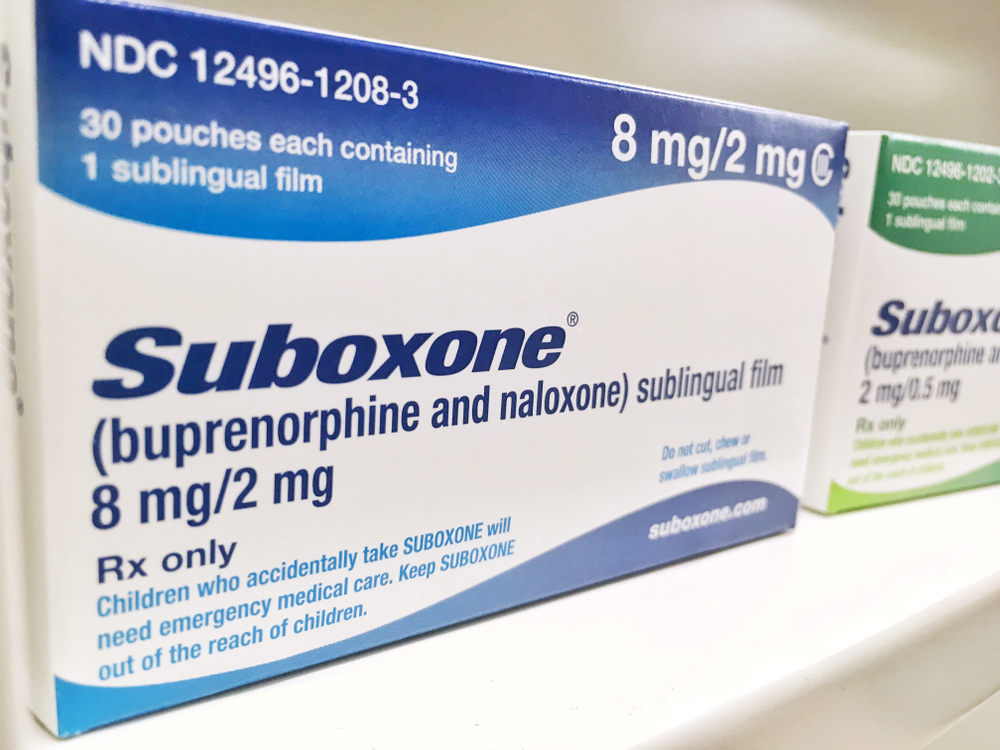The manufacturers of a popular drug effective at treating opioid use disorder (OUD) are facing lawsuits from patients who say it gave them severe, often permanent dental problems.
Suboxone, a brand-name prescription drug administered via a film placed under the tongue, contains buprenorphine and naloxone. These drugs work by reducing the cravings and withdrawal symptoms of opioid use disorder. They are typically used in medication-assisted treatment (MAT) programs in conjunction with counseling and behavioral therapy. MAT is effective in helping users gradually reduce their dependence on opioids and sustain recovery once they are clean.
Opioids are substances that work in the nervous system or specific brain receptors to reduce the intensity of pain. Drugs like oxycodone (OxyContin), hydrocodone (Vicodin), morphine, and fentanyl are routinely prescribed to patients after major surgery or for especially painful conditions. Heroin is an illegal opioid.
Buprenorphine, while a potent solution for OUD, is highly acidic and can soften the tooth enamel, accelerating decay.
Many Suboxone users have reported tooth loss or decay, broken teeth, oral infections, and other dental issues. Recent Suboxone lawsuits allege drugmaker Indivior and former parent company Reckitt Benckiser knowingly failed to warn patients and healthcare providers of these risks.
In January 2022, the FDA issued a warning about buprenorphine after receiving numerous reports from patients who had developed severe oral problems, including many with no history of dental issues. The FDA instructed Indivior to add a warning of dental problems to the prescribing information and patient medication guides.
As of this writing, warnings have been added to the prescribing information for physicians but have yet to be added to the list of possible side effects in patient guides.
The U.S. is in the throes of an unprecedented opioid epidemic, with a drug overdose death occurring every five minutes. The FDA maintains that Suboxone is a safe and effective treatment for OUD with benefits that far outweigh the risks.
Suboxone and Opioid Use Disorder
So many Americans have died from drug overdoses in recent decades that average life expectancy has decreased. The scope of this epidemic is evident in statistics:
- More than 75 percent of drug overdose deaths in 2021 involved opioids
- The 80,000+ drug overdose deaths in 2021 were ten times the number in 1999
- Only 6.3 percent of people with an illicit drug or alcohol problem in 2021 received treatment
- 10.1 million people misused prescription opioids in 2019
Suboxone is more effective than naloxone alone (Narcan) because it binds well with the same pleasure receptors as opiates.
“So if you were a heroin addict on Suboxone and you took heroin, it would have nowhere to bind because Suboxone sort of fills everything up,” CNN Chief Medical Correspondent Dr. Sanjay Gupta said in a 2016 report. “It essentially prevents those drugs from working.”
A 2019 study showed that opioid craving scores before treatment with Suboxone were between 62.4-64.6 out of 100; after a month on Suboxone, they scored 29.8.
The FDA’s 2002 approval of Suboxone made it the first opioid use disorder drug that could be prescribed or given at a physician’s office instead of a methadone clinic, greatly increasing access to treatment. Many drug users cannot get to a methadone clinic; others stay away due to the negative stigma surrounding those facilities.
The FDA noted in its warning that prescriptions for buprenorphine in dissolvable form increased from 11 million to 16 million between 2014 and 2020.
While Suboxone is considered safer than Narcan, users can still experience depression and anxiety, memory problems, slurred speech, headaches and muscle pain, nausea and other gut issues, sweating and fevers, insomnia, and mood swings.
Dental Complications Related to Suboxone
The FDA’s January 2022 warning about buprenorphine reported 305 cases of dental problems from its use; 131 were classified as serious. Tooth extraction and/or removal was the most common treatment, but other interventions included dental surgery, root canals, crowns, and implants.
Because the benefits of Suboxone far outweigh the risks, said the FDA, patients should not discontinue use without consulting a physician.
Suboxone patients who are worried about their oral health can reduce their chances of complications using these precautions:
- Ensure you are applying your Suboxone correctly
- After the medicine is completely dissolved, swish a large sip of water around your teeth and gums before swallowing
- Wait at least one hour after using Suboxone before brushing your teeth
Suboxone Tooth Decay Lawsuits
Lawsuits claim Suboxone film caused serious oral health problems such as permanent tooth decay requiring extensive dental work. They allege that the company knew or should have known that Suboxone when used as prescribed and intended, causes harmful damage to the teeth due to the acidity of buprenorphine.
Plaintiffs are seeking compensation for dental bills, lost wages, loss of enjoyment of life, and more. As in other product liability cases, defendants include not just Indivior but entities who developed, designed, tested, manufactured, and distributed Suboxone.
Many Suboxone lawsuits have been filed in the U.S. District Court for the Northern District of Ohio; plaintiffs have requested that they be consolidated into multidistrict litigation (MDL) to streamline the process.
The Suboxone lawsuits thus far were filed by plaintiffs who used the drug before 2022, when there was no warning of tooth decay. Suboxone users who suffered dental problems, including after the warning was issued, should speak to a qualified Suboxone lawyer about possible legal options.










